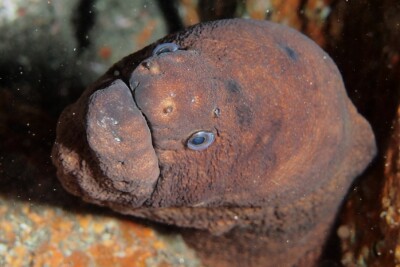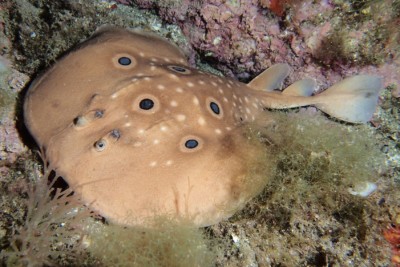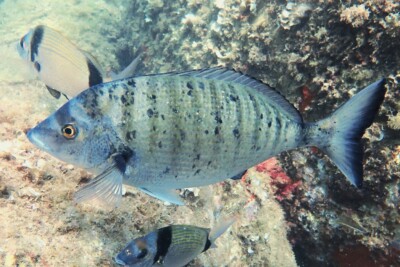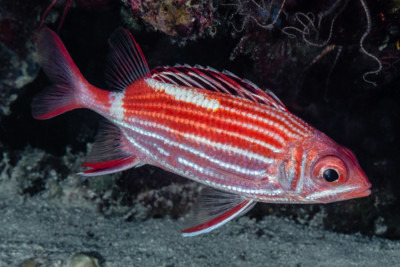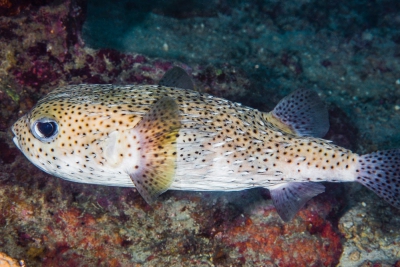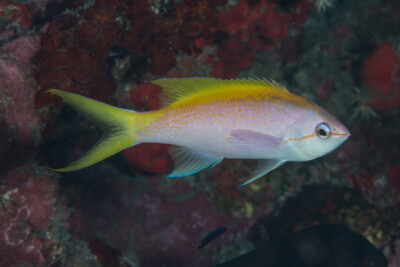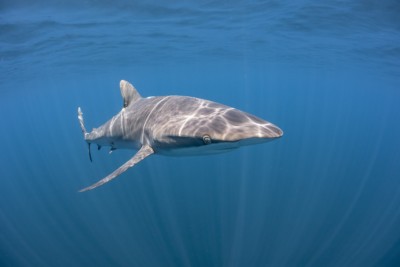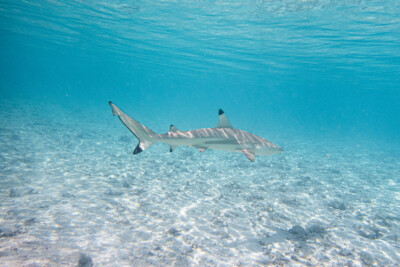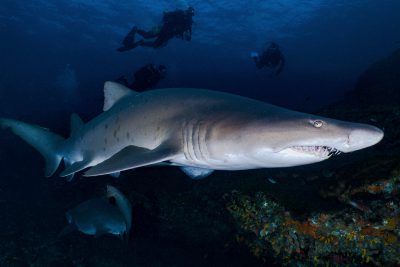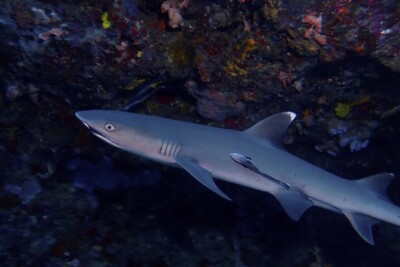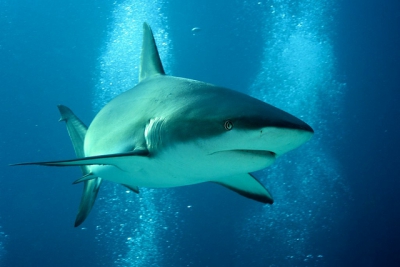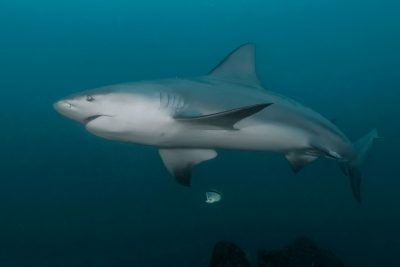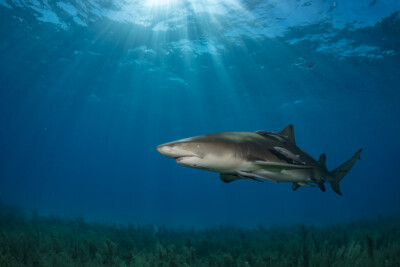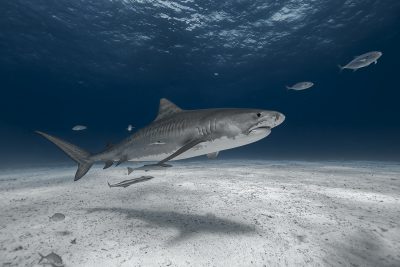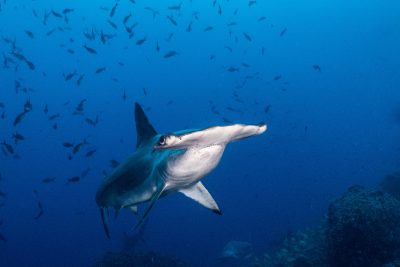great hammerhead
| Scientific name | Sphyrna mokarran |
|---|---|
| Descriptor | Rüppell |
| Year of description | 1837 |
| IUCN category (World) | CR |
| Family | Carcharhinidae |
| Genus | Sphyrna |
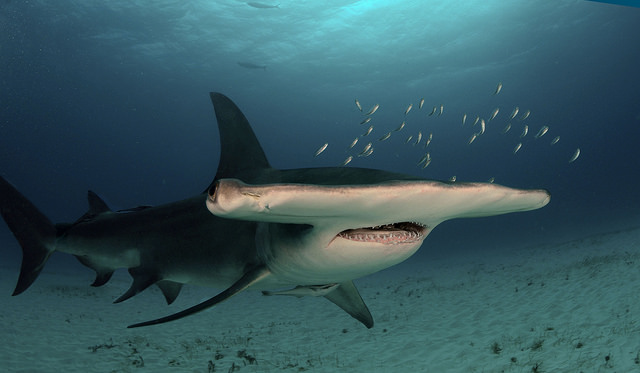

Introduction
Sphyrna mokarran, commonly known as great hammerhead, is a salt water fish.
This sheet is currently being prepared. The texts currently proposed come from our data model or are being drafted. To request priority for this content, you can write to us HERE.
Who is it?
Morphology
-
Type
-
Average size300 cm
-
Maximum size610 cm
-
Longevity37 year
-
ShapeRectangular
-
Patternvertical stripes
-
Type
-
Average size300 cm
-
Maximum size610 cm
-
Longevity37 year
-
ShapeRectangular
-
Patternvertical stripes
How to recognize This fish ?
The great hammerhead measures between 300 and 610 cm. This fish is unicolore with a predominantly body. The also has noir vertical stripes.
Behaviour & Life cycle
-
dietcarnivorous
-
Sociabilityliving in shoals
-
territorialNo
-
Way of livingdiurnal
The great hammerhead is a fish living in shoals. This species is carnivorous .
Although the great hammerhead is non-territorial, it is sometimes aggressive towards other species.
Reproduction
-
Reproductionovovivipare
-
Migratory speciesYes
The great hammerhead is a fish ovovivipare.
Life-threatening species
-
VenomousNo
-
BiteYes
This species can attack if it feels threatened. It is important to be particularly vigilant especially during dives or fishing sessions. In the most serious cases, it can cause death.
Origin and distribution

Conservation status of populations (IUCN)
What is its habitat?
Natural environment characteristics
-
Depth0 - 300 m
-
EnvironmentActive pelagic
Biotope presentation
The great hammerhead is most often found at a depth between 0m and 300m. However, it is not impossible to find this species at other depths.
Species of the same biotope
Fishkeeping
Not recommended
We do not recommend keeping this species in an aquarium. It has unpredictable needs which, if not met, generate significant stress, potentially leading to a shorter life expectancy, an interruption of its growth or the development of pathogens.
To go further
Sources & Contributions
Participation & Validation
The Fishipedia team and specialist contributors are committed to providing high-quality content. However, although the information comes from scientific sources or testimonials from specialists, the cards may contain inaccuracies.

Adrien Falzon

Benoit Chartrer

Silvia Gomez
Translation
Translation done with the valuable contribution of our translators, who make this information available to a wider audience. We sincerely thank them for their commitment.
Scientific partners
Tags
#Carcharhinidae
#Sphyrna
#shark
#Bay of Bengal
#Gulf of Mexico
#Persian Gulf
#Great Barrier Reef
#mer d'Oman
#Tasman Sea
#Caribbean Sea
#Philippine Sea
#Sea of Japan
#Mediterranean Sea
#Red Sea
#South East Asian Seas
#Indonesian seas
#Atlantic Ocean: North Coast of Brazil
#Océan Atlantique Est Afrique - Golfe de guinée
#Temperate Eastern Atlantic Ocean
#Océan Atlantique Est Afrique - Transition & Cap Vert
#Gough Island
#Saint Helena
#Northwest warm temperate Atlantic Ocean
#Southwest warm temperate Atlantic Ocean
#Eastern tropical Atlantic Ocean
#Southwest Tropical Atlantic Ocean
#western Indian Ocean
#Océan Pacifique Nord Est Tempere Chaud
#Océan Pacifique sud-est tempéré chaud
#Tropical Eastern Pacific
#Western Tropical Pacific Ocean
#Oceania
#Canary Islands
#Réunion
#Sicily
Species of the same family
Same genus
Species of the same biotope




